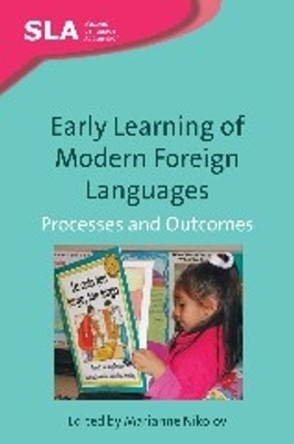Description
About the Author
John Gallagher was educated at Trinity College Dublin and Emmanuel College, Cambridge. After holding a Research Fellowship in History at Gonville & Caius College, Cambridge, he became Lecturer in Early Modern History at the University of Leeds in 2017. His work has appeared or is forthcoming in Renaissance Quarterly, Renaissance Studies, The Italianist, Huntington Library Quarterly, and others. He is a BBC/AHRC New Generation Thinker and a frequent contributor to radio and print media.
Reviews
[Learning Languages] exemplifies the benefit of combining cutting-edge historical research with historical sociolinguistics ... [Gallagher] handles a wealth of multilingual manuscripts - language exercises, diaries, notebooks, and correspondence - that connect three layers: texts, oral speech and pronunciation, as well as social communication. ... This work comprehensively combines ideas and approaches from the histories of education, books, and travel with social and cultural history. ... From extracurricular education to conversation manuals and travellers' accounts, it illuminates the dynamics of language learning and multilingualism in early modern England and its encounters with continental Europe. * Weiao Xing, Journal of Historical Sciolinguistics *
Learning Languages in Early Modern England offers a fresh account both of the desire for foreign languages that animated early modern English culture and of some of the means pursued by the English in order to acquire them. It will be indispensable for readers interested in the histories of English foreign relations and travel as well as for those whose research treats the history of languages instruction more narrowly. * Rory G. Critten, Journal of British Studies *
Gallagher... assembles a rich body of documentary evidence to illustrate the methods and social importance of instruction in vernacular languages. ... Gallagher's main point is simple but powerful: 'early modern England was multilingual.' ...[He has] given us a picture of an early modern England made louder and more boisterous by print, not silenced by it. Printed books made foreign languages more accessible, even to those without a private teacher or the funds to travel. Overseas trade and global politics resulted in greater interest in foreign tongues, with books on Arabic, Malay and Narragansett as well as the Continental standards. Immigrants take their place here as teachers, authors of foreign-language manuals, and students of English in their own right. This is a story of England finding its many voices. * Irina Dumitrescu, London Review of Books *
The methodological tools and historical contexts... will be of much use to both historians and literary scholars... Gallagher's concepts are clearly defined and arguments well developed... Learning Languages in Early Modern England is a significant contribution to scholarly conversations about historical multilingualism, education, language acquisition, and intellectual economies and networks; it will be found of much interest and importance not just to the student of English cultural history, but to anyone with an interest in textual production and/or social interactions in the early modern period, who will be inspired by its arguments about the role of languages and learning in people's lived experience in the period, and aided by its clarity of thought and organization. * Sjoerd Levelt, Renaissance Studies *
Gallagher is meticulous in his work, and bases his narrative on early modern primary records. ...The sheer volume of Gallagher's sources is convincing, and the society that he describes is one where polyglot men and women of different classes delight in 'speaking tongues'. ...Gallagher also explains why learning another language was important in early modern England, and this may offer a different perspective to the one we have on that society. * Onyeka Nubia, Social History *
How English men and women of the late 15th to the early 18th century went about doing so is the subject of John Gallagher's fascinating new book, a welcome attempt to show that the history of language encompasses much more than just the history of words. * Fara Dabhoiwala, The Guardian *
Book Information
ISBN 9780192865151
Author John Gallagher
Format Paperback
Page Count 288
Imprint Oxford University Press
Publisher Oxford University Press
Weight(grams) 432g
Dimensions(mm) 232mm * 154mm * 14mm





